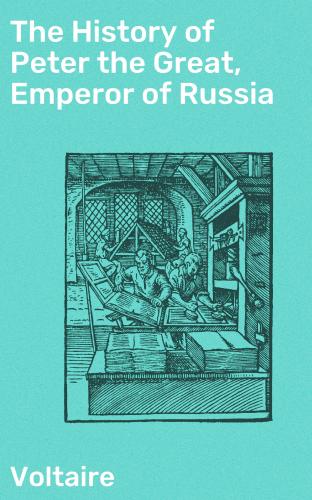Here we have a round number of six millions six hundred forty-six thousand three hundred and ninety male persons, who pay the poll-tax. In this number are included boys and old men, but girls and women are not reckoned, nor boys born between the making of one register of the lands and another. Now, if we only reckon triple the number of heads subject to be taxed, including women and girls, we shall find near twenty millions of souls.
To this number we may add the military list, which amounts to three hundred and fifty thousand men: besides, neither the nobility nor clergy, who are computed at two hundred thousand, are subject to this capitation.
Foreigners, of whatever country or profession, are likewise exempt: as also the inhabitants of the conquered countries, namely, Livonia, Esthonia, Ingria, Carelia, and a part of Finland, the Ukraine, and the Don Cossacks, the Calmucks, and other Tartars, Samojedes, the Laplanders, the Ostiaks, and all the idolatrous people of Siberia, a country of greater extent than China.
By the same calculation, it is impossible that the total of the inhabitants of Russia should amount to less than twenty-four millions. At this rate, there are eight persons to every square mile. The English ambassador, whom I have mentioned before, allows only five; but he certainly was not furnished with such faithful memoirs as those with which I have been favoured.
Russia therefore is exactly five times less populous than Spain, but contains near four times the number of inhabitants: it is almost as populous as France or Germany; but, if we consider its vast extent, the number of souls is thirty times less.
There is one important remark to be made in regard to this enumeration, namely, that out of six million six hundred and forty thousand people liable to the poll-tax, there are about nine hundred thousand that belong to the Russian clergy, without reckoning either the ecclesiastics of the conquered countries, of the Ukraine, or of Siberia.
Therefore, out of seven persons liable to the poll-tax, the clergy have one; but, nevertheless, they are far from possessing the seventh part of the whole revenues of the state, as is the case in many other kingdoms, where they have at least a seventh of all estates; for their peasants pay a capitation to the sovereign; and the other taxes of the crown of Russia, in which the clergy have no share, are very considerable.
This valuation is very different from that of all other writers, on the affairs of Russia; so that foreign ministers, who have transmitted memoirs of this state to their courts, have been greatly mistaken. The archives of the empire are the only things to be consulted.
It is very probable, that Russia has been better peopled than it is at present; before the small-pox, that came from the extremities of Arabia, and the great-pox that came from America, had spread over these climates, where they have now taken root. The world owes these two dreadful scourges, which have depopulated it more than all its wars, the one to Mahomet, and the other to Christopher Columbus. The plague, which is a native of Africa, seldom approached the countries of the North: besides, the people of those countries, from Sarmatia to the Tartars, who dwell beyond the great wall, having overspread the world by their irruptions, this ancient nursery of the human species must have been surprisingly diminished.
In this vast extent of country, there are said to be about seventy-four thousand monks, and five thousand nuns, notwithstanding the care taken by Peter the Great to reduce their number; a care worthy the legislator of an empire where the human race is so remarkably deficient. These thirteen thousand persons, thus immured and lost to the state, have, as the reader may have observed, seventy-two thousand bondmen to till their lands, which is evidently too great a number: there cannot be a stronger proof how difficult it is to eradicate abuses of a long standing.
I find, by a list of the revenues of the empire in 1735, that reckoning the tribute paid by the Tartars, with all taxes and duties in money, the sum total amounted to thirteen millions of rubles, which makes sixty-five millions of French livres, exclusive of tributes in kind. This moderate sum was at that time sufficient to maintain three hundred and thirty-nine thousand five hundred, as well sea as land forces: but both the revenues and troops are augmented since that time.
The customs, diets, and manners of the Russians, ever bore a greater affinity to those of Asia than to those of Europe: such was the old custom of receiving tributes in kind, of defraying the expenses of ambassadors on their journeys, and during their residence in the country, and of never appearing at church, or in the royal presence with a sword; an oriental custom, directly
